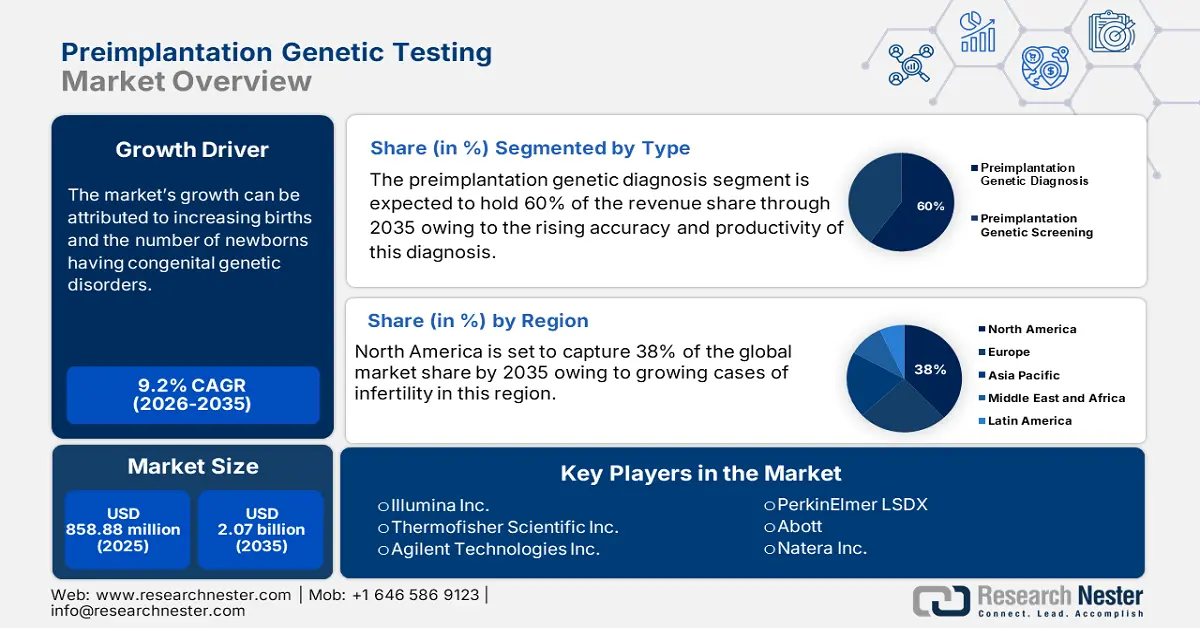Preimplantation Genetic Testing Market Outlook:
Preimplantation Genetic Testing Market size was valued at USD 858.88 million in 2025 and is likely to cross USD 2.07 billion by 2035, expanding at more than 9.2% CAGR during the forecast period i.e., between 2026-2035. In the year 2026, the industry size of preimplantation genetic testing is assessed at USD 930 million.
The growth of the preimplantation genetic testing market can be attributed to the rise in the number of new births born with congenital genetic disorders. The embryo is examined for a wide range of genetic problems during preimplantation genetic testing. According to the Centers for Disease Control and Prevention, the most frequent chromosomal disorder identified in the US is still Down syndrome. In the United States, roughly 6,000 newborns are born with Down syndrome every year. This indicates that roughly 1 in 700 infants have Down syndrome.
In addition to these, factors that are believed to fuel the preimplantation genetic testing market growth of preimplantation genetic testing include the rising cases of failed pregnancies, miscarriages, and others. Preimplantation genetic testing is typically utilized when women want to examine their embryos for issues that could result in another unsuccessful treatment after experiencing many miscarriages or failed IVF cycles. Embryos can also be examined for chromosomal issues using this method. Besides this, another application of preimplantation genetic testing, such as pre-implantation tissue typing is also helpful in testing for various blood disorders, including Wiscott-Aldrich Syndrome, and Sickle Cell Anaemia. PTT ensures the safe birth of a baby without any disease, moreover, it also predicts if the older sibling can successfully be treated with the stem cells of the new infant.


